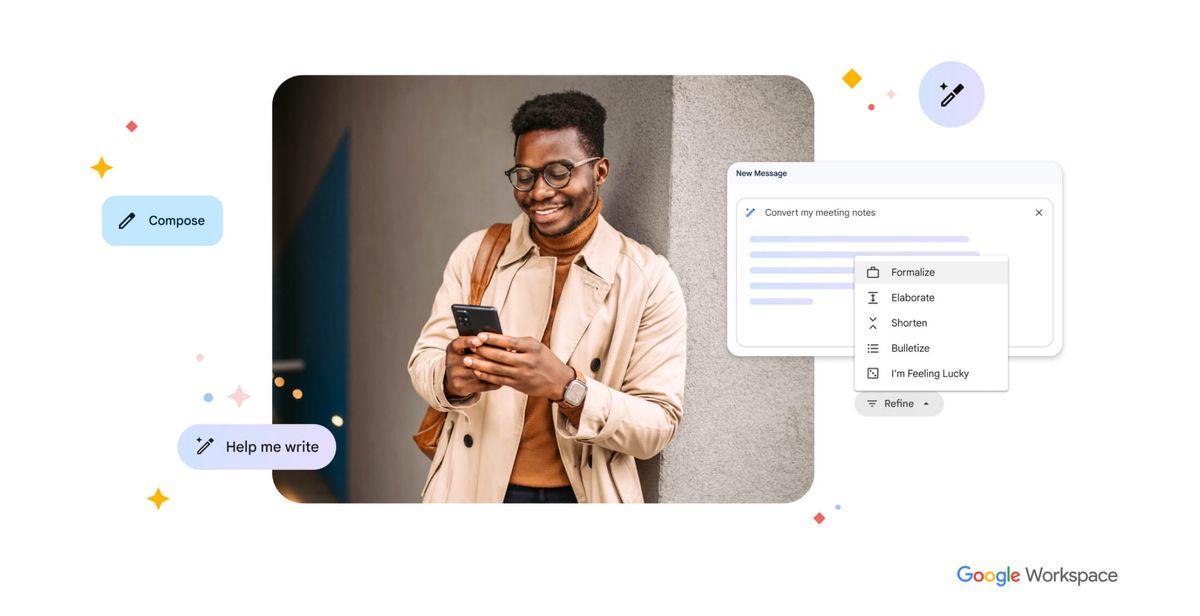
In an ambitious move, Google has announced a sweeping update to its Workspace suite. The update will introduce generative AI models to apps such as Gmail, Docs, Sheets, and Slides, with the aim of transforming the way users interact with productivity tools. As the tech giant races against Microsoft to incorporate AI into its productivity services, this latest move could signal a new era in the world of productivity software.
The announcement comes just days ahead of Microsoft's "Future of Work" event, where the company is expected to unveil similar AI-powered enhancements to its Office suite.
Google's plan involves integrating AI models into virtually every aspect of Workspace, with initial features focusing on drafting and rewriting documents in Docs, generating formulas in Sheets, and summarizing emails in Gmail. The ultimate goal is to infuse AI into all Workspace workflows, transforming the way users interact with productivity tools.
Google Cloud CEO Thomas Kurian said during a press briefing, "Google Workspace has been a longtime pioneer in enabling real-time collaboration, where human beings work together in real-time in our products. This next phase is where we're bringing human beings to be supported with an AI collaborator who is working in real-time in concert with them."

Some of the features that Google says customers can look forward to include the ability to:
- draft, reply, summarize, and prioritize your Gmail
- brainstorm, proofread, write, and rewrite in Docs
- bring your creative vision to life with auto-generated images, audio, and video in Slides
- go from raw data to insights and analysis via auto-completion, formula generation, and contextual categorization in Sheets
- generate new backgrounds and capture notes in Meet
- enable workflows for getting things done in Chat
Currently, these new features are only available to a select group of "Trusted Testers," with no specific timeline for when they will be rolled out to a wider audience. However, Kurian mentioned that the company plans to release new features "every couple of weeks," with the first phase involving assistance in writing emails in Gmail and documents in Docs.
One of the most impressive demonstrations by Google showcased the integration of text-based work with generative AI models for image and music generation in Slides. Kurian explained, "With Slides, we're helping you generate insights and images from text in slides. So you can use images from your rich content library, your brand images — if you've got your own company's images — and private repositories, to generate these images and superpower every person building with slides, including generating soundtracks."
While pricing information is still unavailable, Kurian did reveal that Google intends to make these solutions accessible to a broad range of users, including enterprises, small businesses, consumers, and even Google One subscribers.
As Google and Microsoft compete to incorporate generative AI into their productivity services, this latest move by Google could signal a new era in the world of productivity software. However, with AI models like ChatGPT sometimes generating biased or unreliable content, there is still work to be done to ensure that these new features are dependable and effective. For now, Google's latest announcement is an exciting glimpse into the future of AI-driven productivity tools.

